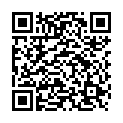|
|
|
| Module code: MST603 |
|
1V+1U+1PA (3 hours per week) |
|
3 |
| Semester: 6 |
| Mandatory course: yes |
Language of instruction:
German |
Assessment:
Written exam, project work
[updated 12.08.2012]
|
MST603 Mechatronics and Sensor Technology, Bachelor, ASPO 01.10.2005
, semester 6, mandatory course
|
45 class hours (= 33.75 clock hours) over a 15-week period.
The total student study time is 90 hours (equivalent to 3 ECTS credits).
There are therefore 56.25 hours available for class preparation and follow-up work and exam preparation.
|
Recommended prerequisites (modules):
MST304 Electrical engineering
MST407 CAD in Electronics
MST503 General Sensor Technology
[updated 12.08.2012]
|
Recommended knowledge:
Electronics with Lab Course
[updated 12.08.2012]
|
Recommended as prerequisite for:
|
Module coordinator:
Prof. Dr. Dieter Hornung |
Lecturer: Prof. Dr. Dieter Hornung
[updated 01.10.2005]
|
Learning outcomes:
Students will learn how to develop sensor evaluation circuits, signal interfaces and actuator control circuits that are ready for production.
[updated 12.08.2012]
|
Module content:
The circuit design process will be explained using selected examples of sensor evaluation circuits. Specialist components will be described and discussed as required. The course focuses in particular on the directives governing the issuing of the CE mark and how they influence circuit and product design.
Case studies will be analysed in order to examine the production feasibility and hence the associated costs of the proposed solutions.
[updated 12.08.2012]
|
Teaching methods/Media:
Lectures with problem-solving exercises
[updated 12.08.2012]
|
Recommended or required reading:
Lecture notes, application notes from the semiconductor manufacturers, data sheets
Ulrich Tietze / Christoph Schenk: Halbleiterschaltungstechnik, Berlin, Springer Verlag
Jacob Millman / Arvin Grabel: Microelectronics, New York, McGraw – Hill Book Company
[updated 12.08.2012]
|


